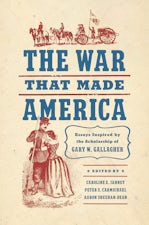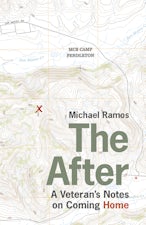Rich Man's War, Poor Man's Fight
Race, Class, and Power in the Rural South during the First World War
By Jeanette Keith
272 pp., 6.125 x 9.25, 2 maps, notes, bibl., index
-
Paperback ISBN: 978-0-8078-5562-1
Published: November 2004 -
E-book EPUB ISBN: 978-0-8078-7589-6
Published: October 2005 -
E-book PDF ISBN: 979-8-8908-7856-4
Published: October 2005
Buy this Book
- Paperback $42.50
- E-Book $29.99
For Professors:
Free E-Exam Copies
Awards & distinctions
2005 Willie Lee Rose Prize, Southern Association for Women Historians
Jeanette Keith traces southern draft resistance to several sources, including whites' long-term political opposition to militarism, southern blacks' reluctance to serve a nation that refused to respect their rights, the peace witness of southern churches, and, above all, anger at class bias in federal conscription policies. Keith shows how draft dodgers' success in avoiding service resulted from the failure of southern states to create effective mechanisms for identifying and classifying individuals. Lacking local-level data on draft evaders, the federal government used agencies of surveillance both to find reluctant conscripts and to squelch antiwar dissent in rural areas.
Drawing upon rarely used local draft board reports, Selective Service archives, Bureau of Investigation reports, and southern political leaders' constituent files, Keith offers new insights into rural southern politics and society as well as the growing power of the nation-state in early twentieth-century America.
About the Author
Jeanette Keith is professor of history at Bloomsburg University in Pennsylvania. She is author of a two-volume history of the South and of Country People in the New South: Tennessee's Upper Cumberland.
For more information about Jeanette Keith, visit
the
Author
Page.
Reviews
"Keith's wonderfully lucid account of draft resistance in the rural South offers an exemplary case study of how state efforts to impose rational order were frustrated by ordinary people getting on with their lives."--American Historical Review
"Keith provides a thoughtful, discerning account of the distinctive character of the anti-war movement in the rural South. . . . A welcome addition to the history of this period."--History News Network
"[Keith] provides a good, comprehensive overview of the political and social aspects of dissent."--H-SAWH
"During World War I class and urban-rural tensions fueled opposition to the draft among whites and blacks. Through an insightful exploration of this resistance, Rich Man's War, Poor Man's Fight boldly challenges the image of the South as monolithic and militaristic. This carefully argued book, based on rarely used archival sources, thereby broadens our understanding of early twentieth-century southern society as well as America's response to World War I."--Gaines M. Foster, Louisiana State University




